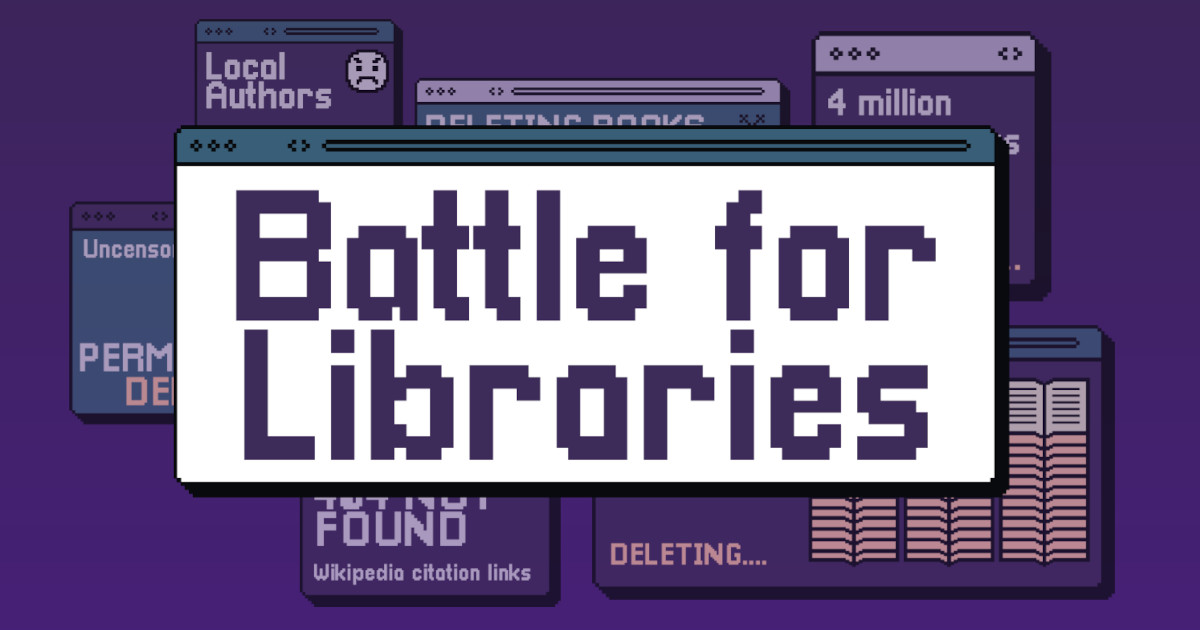Battle for Libraries
www.battleforlibraries.comDon’t let libraries die. As the future goes digital, major publishers are suing to cut off libraries’ defense of digital books from censorship. It’s time to fight back.
It looks like the internet archive is needed assistance, I just heard about this today and figured lemmy could help spread this message around
You must log in or register to comment.
A place to discuss privacy and freedom in the digital world.
Privacy has become a very important issue in modern society, with companies and governments constantly abusing their power, more and more people are waking up to the importance of digital privacy.
In this community everyone is welcome to post links and discuss topics related to privacy.
Some Rules
- Posting a link to a website containing tracking isn’t great, if contents of the website are behind a paywall maybe copy them into the post
- Don’t promote proprietary software
- Try to keep things on topic
- If you have a question, please try searching for previous discussions, maybe it has already been answered
- Reposts are fine, but should have at least a couple of weeks in between so that the post can reach a new audience
- Be nice :)
Related communities
much thanks to @gary_host_laptop for the logo design :)
- 0 users online
- 108 users / day
- 435 users / week
- 1.32K users / month
- 4.54K users / 6 months
- 1 subscriber
- 4.51K Posts
- 114K Comments
- Modlog







Blockchain is great for when you need global consensus on the ordering of events (e.g. Alice gave all her 5 ETH to Bob first, so a later transaction to give 5 ETH to Charlie is invalid). It is an unnecessarily expensive solution just for archival, since it necessitates storing the data on every node forever.
Ethereum charges ‘gas’ fees per transaction which helps ensure it doesn’t collapse under the weight of excess usage. Blocks have transaction limits, and transactions have size limits. It is currently working out at about US$7,500 per MB of block data (which is stored forever, and replicated to every node in the network). The Internet Archive have apparently ~50 PB of data, which would cost US$371 trillion to put onto Ethereum (in practice, attempting this would push up the price of ETH further, and if they succeeded, most nodes would not be able to keep up with the network). Really, this is just telling us that blockchain is not appropriate for that use case, and the designers of real world blockchains have created mechanisms to make it financially unviable to attempt at that scale, because it would effectively destroy the ability to operate nodes.
The only real reason to use an existing blockchain anyway would be on the theory that you could argue it is too big to fail due to legitimate business use cases, and too hard to remove censorship resistant data. However, if it became used in the majority for censorship resistant data sharing, and transactions were the minority, I doubt that this would stop authorities going after node operators and so on.
The real problems that an archival project faces are:
deleted by creator